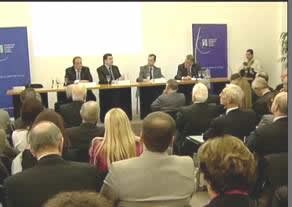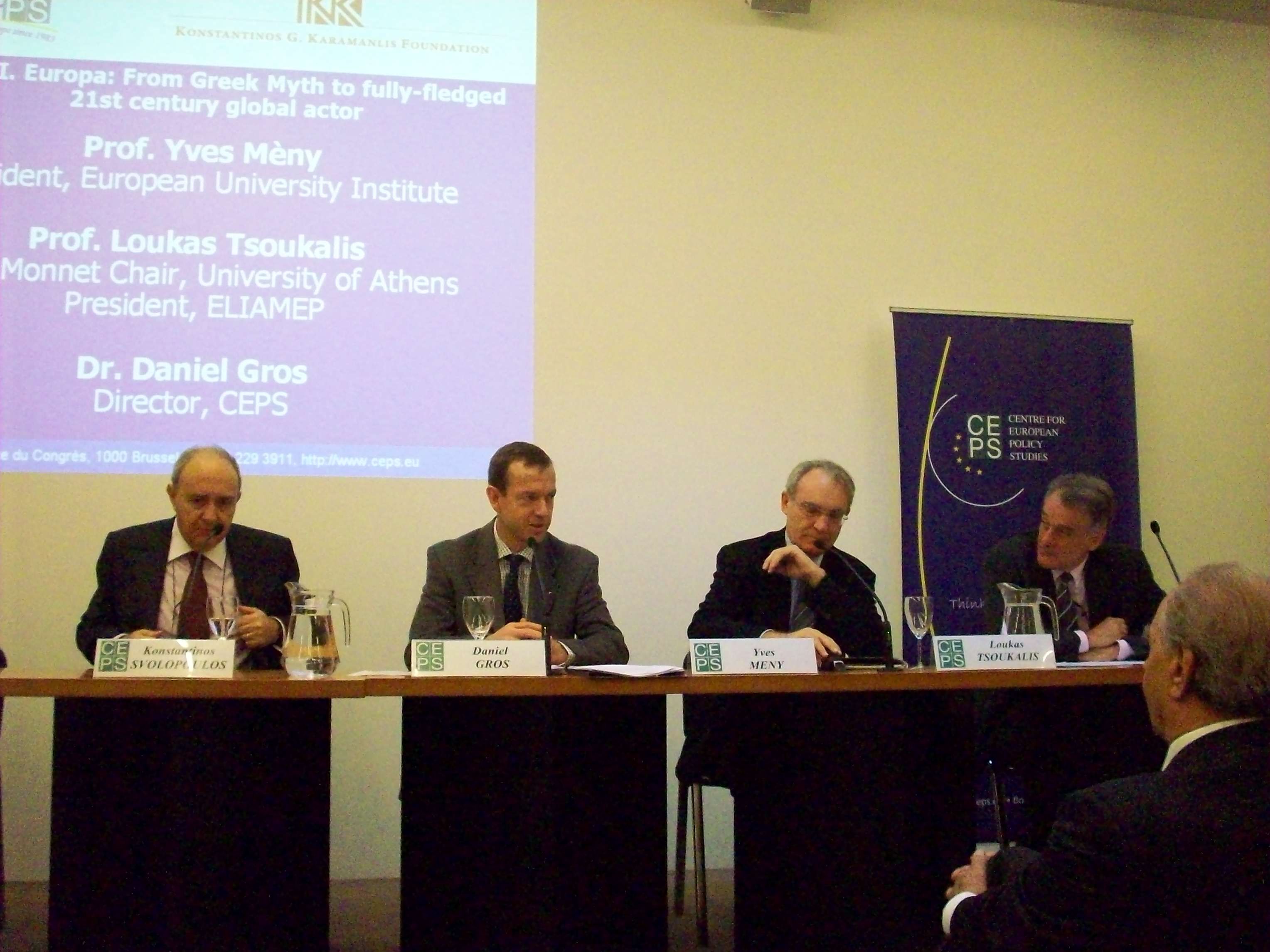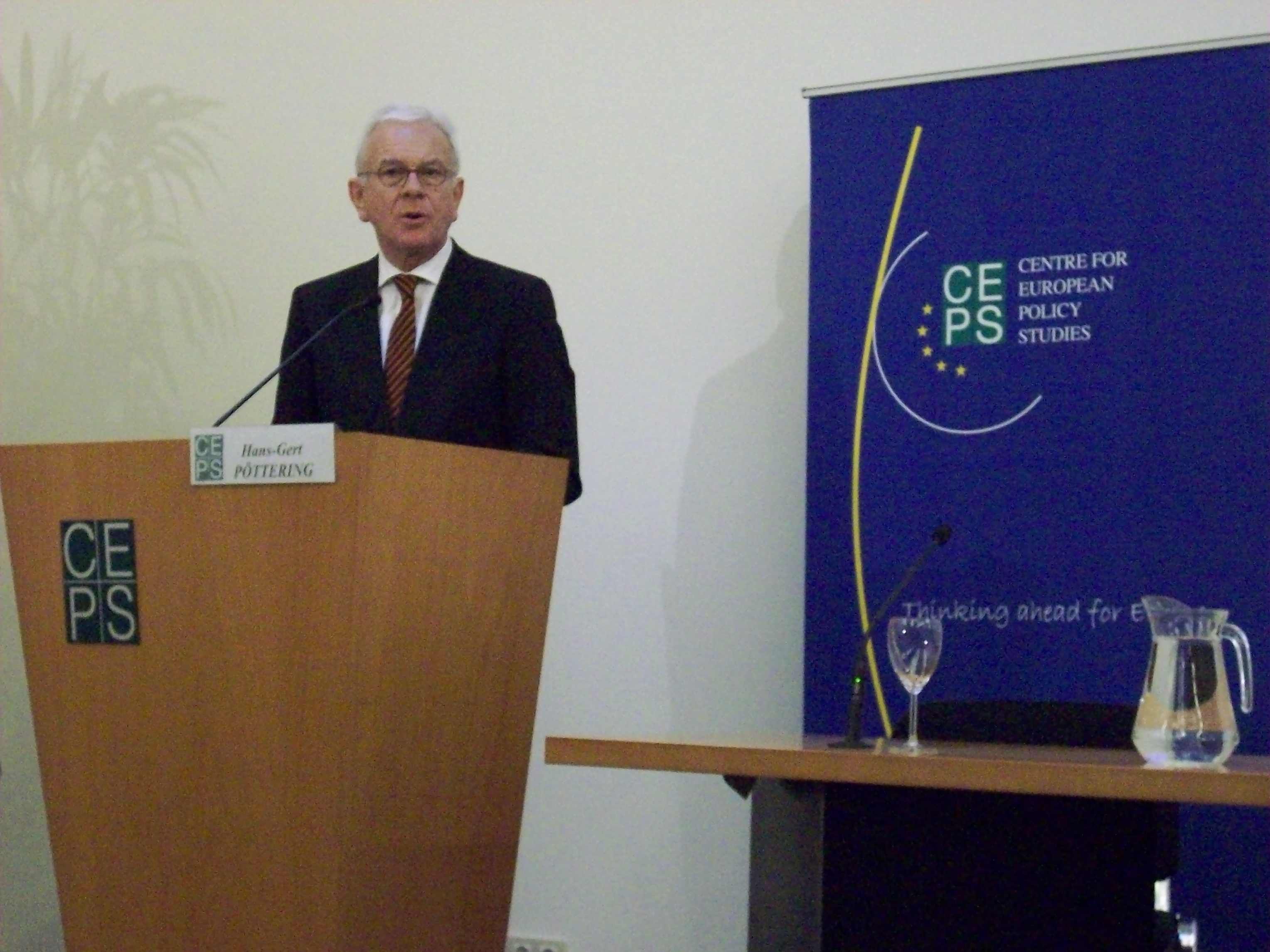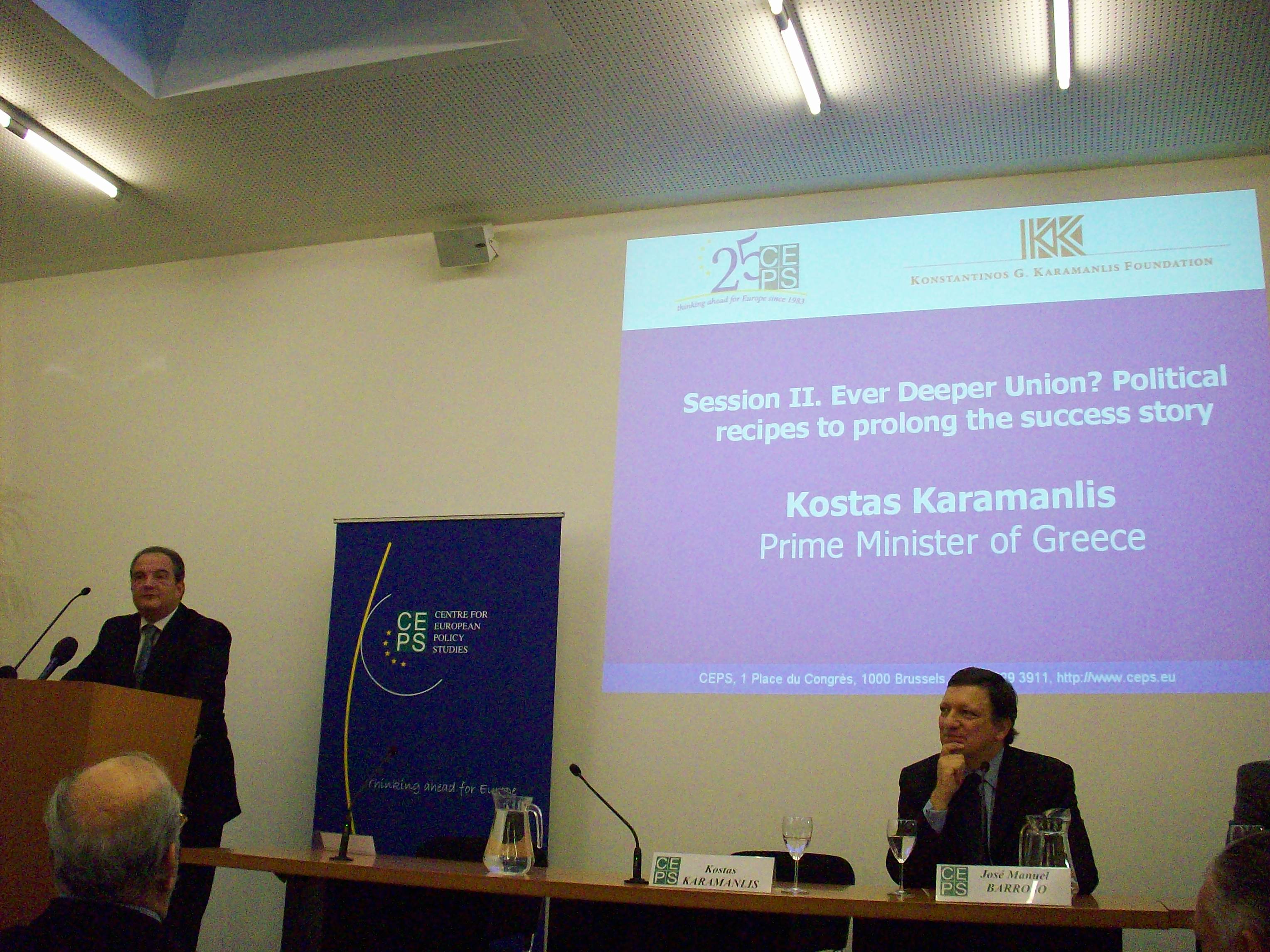| Raised items and issues:
* Striving after and realising a stronger Europe. But not a way to go for protection but for an open society
* to see the possibilities to change. It is now (or never), we are in the midst at the moment
* are limits achieved?
* economic area / approach, creating jobs and employment
* backwards: hard times for financial institutions
* not only be obsessed by competition
* own direction is certain risk
* still far away from international affairs
* growing to a multipolar structure ( distribution of power). Weights of European countries decline: size matters
* mobilizing of also younger European people
* attention for the euro, institutional and political structures. The euro has provided against the turmoil, but that is not enough
* future not only on economy but also social aspects
* (good) programs also in the pipeline of 'Brussels'* European fund (to take measures) : countries say: 'I have to pay for the other'. It is wrong. Politicians.present it as a burden', but it could happen that one pulls back, afraid of more damage
* political will has to be present responsibility to the community and ourselves
* necessary presence of legal order
* the choice of a social market economy / policy
* solidarity and subsidiarity
* the reform of the EU (without Treaty of Lisbon no enlargement). The crisis showed how important it is to have the institutions. The present situation is an ultimate test and it is to demonstrate that the Union is not limited and can filling the absence of matter concerning deficit of leadership. For Ireland, there are good arguments now not to block anymore
* partnership with USA and Russia
* the lead concerning Georgia
* financial markets: Africa should not pay the price (moral responsibility)
* dialogue of cultures, on mutual basis (if we do not succeed, we get.a very difficult 21st century)
* values first: EU based on (to keep respect to) law, principle of democracy and political coordination, not on power
* energy policy and climate change (world-wide approach)
* food
* diseases
* levels: citizens, regions, nation states, European Union |




